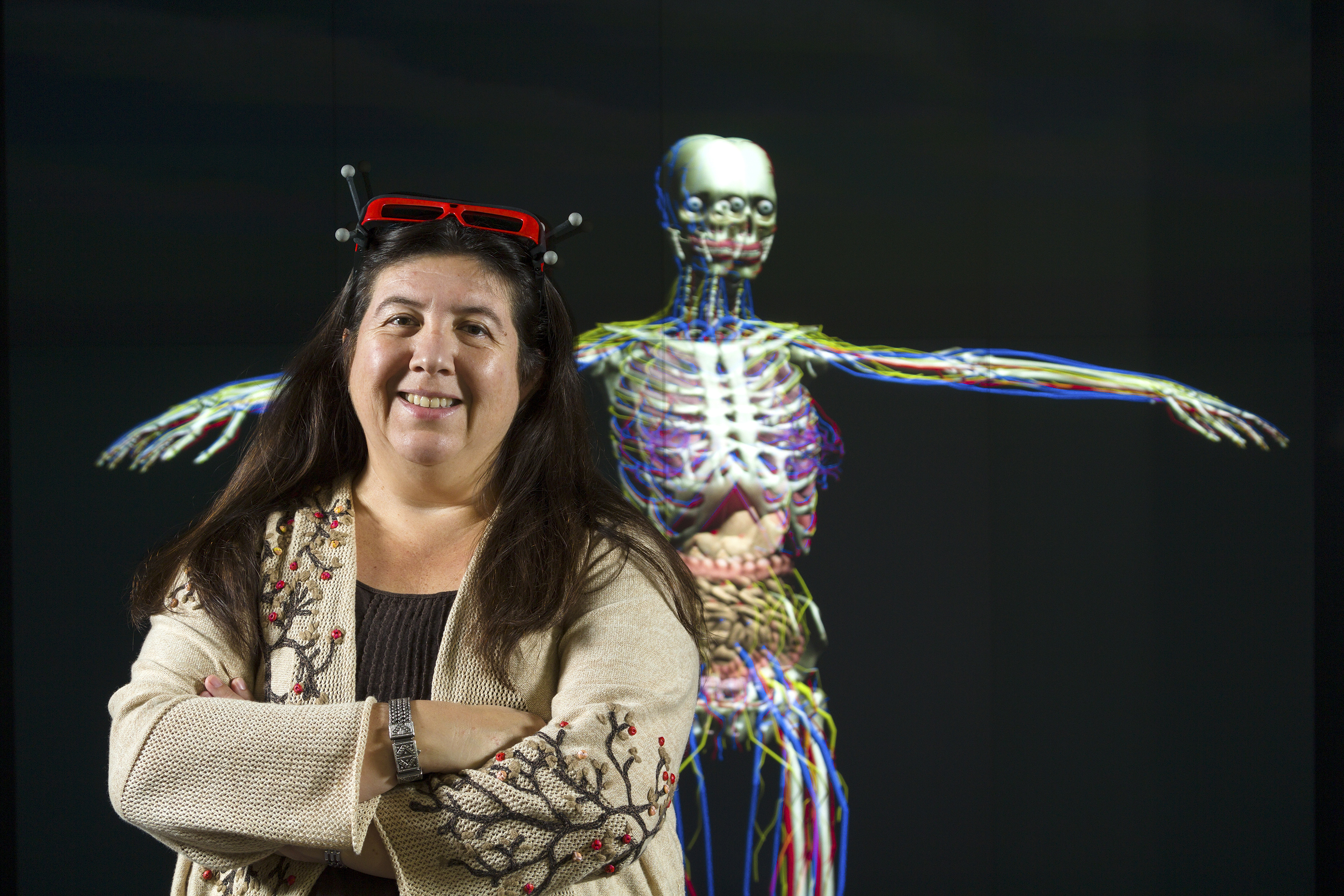Cruz-Neira demonstrates innovations in virtual reality at Sundance Film Festival
Dr. Carolina Cruz-Neira, director of the Emerging Analytics Center and interim chair of the Department of Computer Science at the University of Arkansas at Little Rock, demonstrated how innovative virtual reality technology is changing the world for the better during a panel discussion at the Sundance Film Festival.
Dell, official technology sponsor of the 2018 Sundance Film Festival, hosted a “VR for Good” panel featuring innovators who are using virtual reality to make a positive impact on society on Jan. 27 in Park City, Utah.
Cruz-Neira, who has recently been elected a member of the National Academy of Engineering, demonstrated the Anatomic Eyes Project, an interactive cadaver dissection in which users can dissect a life-size cadaver using simple pinch gestures. The technology has the capability to greatly transform medical education and research.
“There’s much to celebrate in VR innovation, but at the heart are the people using the technology to do amazing things which will leave a greater mark on the world,” Gary Radburn wrote in an article about the panel. “Whilst there are still many that are skeptical of whether VR will really ‘take off,’ we are looking forward and committed to its potential, particularly the positive impact it could have on our world with the accessibility of technology.”
The other panelists include Dr. Skip Rizzo, director of medical virtual reality at the Institute for Creative Technologies at the University of Southern California, who demonstrated a VR program that can help treat soldiers with post-traumatic stress disorder, and Mike Libecki, a National Geographic explorer with a new VR series documenting his adventures while promoting environmental awareness and climate change.
More about Carolina Cruz-Neira:
Cruz-Neira, world-renowned inventor of the CAVE virtual environment, leads UA Little Rock’s Emerging Analytics Center for faculty, researchers, and students exploring advanced applications of virtual reality, mixed reality, and visualization.
She uses a wide range of virtual and augmented reality technologies for applications to give industries a competitive edge and to provide several government branches more effective training. She also promotes computer science work and research in education, including computer science programs in public schools. In September and October 2017, the Emerging Analytics Center participated in the TechStart Partnership between Facebook and the state of Arkansas to generate student interest in computer science education and careers.
Cruz-Neira has been recognized as one of the top 25 virtual reality innovators by the gaming website Polygon as well as one of the three greatest female innovators in virtual reality by University Herald.
She holds a bachelor’s degree in systems engineering, cum laude, from the Universidad Metropolitana as well as a master’s degree and a Ph.D. in electrical engineering and computer science, both from the University of Illinois at Chicago, where she specialized in virtual reality, visual analytics, and computations steering research.
